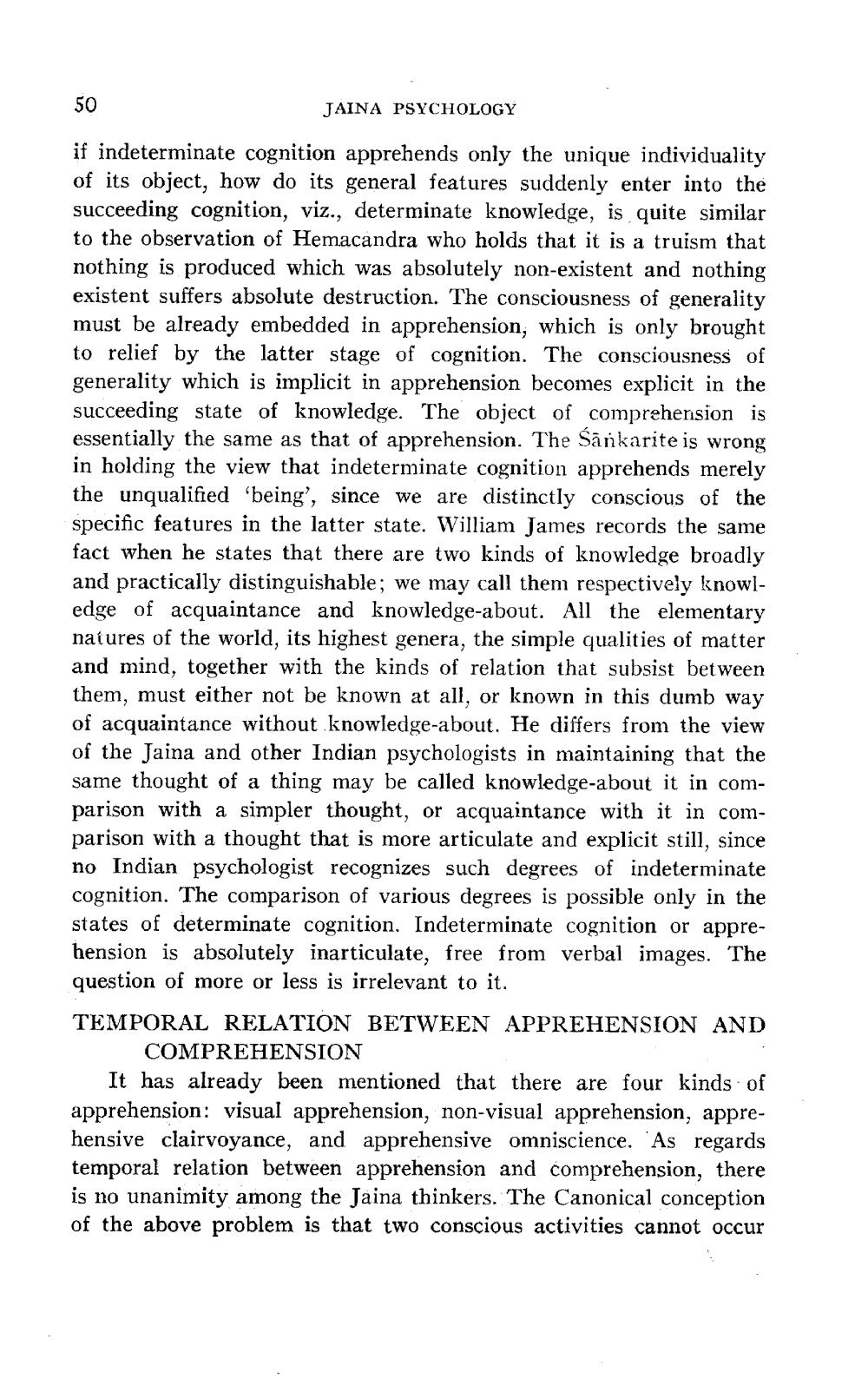________________
50
JAINA PSYCHOLOGY
if indeterminate cognition apprehends only the unique individuality of its object, how do its general features suddenly enter into the succeeding cognition, viz., determinate knowledge, is quite similar to the observation of Hemacandra who holds that it is a truism that nothing is produced which was absolutely non-existent and nothing existent suffers absolute destruction. The consciousness of generality must be already embedded in apprehension, which is only brought to relief by the latter stage of cognition. The consciousness of generality which is implicit in apprehension becomes explicit in the succeeding state of knowledge. The object of comprehension is essentially the same as that of apprehension. The Sankarite is wrong in holding the view that indeterminate cognition apprehends merely the unqualified being', since we are distinctly conscious of the specific features in the latter state. William James records the same fact when he states that there are two kinds of knowledge broadly and practically distinguishable; we may call them respectively knowledge of acquaintance and knowledge-about. All the elementary natures of the world, its highest genera, the simple qualities of matter and mind, together with the kinds of relation that subsist between them, must either not be known at all, or known in this dumb way of acquaintance without knowledge-about. He differs from the view of the Jaina and other Indian psychologists in maintaining that the same thought of a thing may be called knowledge about it in comparison with a simpler thought, or acquaintance with it in comparison with a thought that is more articulate and explicit still, since no Indian psychologist recognizes such degrees of indeterminate cognition. The comparison of various degrees is possible only in the states of determinate cognition. Indeterminate cognition or apprehension is absolutely inarticulate, free from verbal images. The question of more or less is irrelevant to it. TEMPORAL RELATION BETWEEN APPREHENSION AND
COMPREHENSION It has already been mentioned that there are four kinds of apprehension: visual apprehension, non-visual apprehension, apprehensive clairvoyance, and apprehensive omniscience. As regards temporal relation between apprehension and comprehension, there is no unanimity among the Jaina thinkers. The Canonical conception of the above problem is that two conscious activities cannot occur




